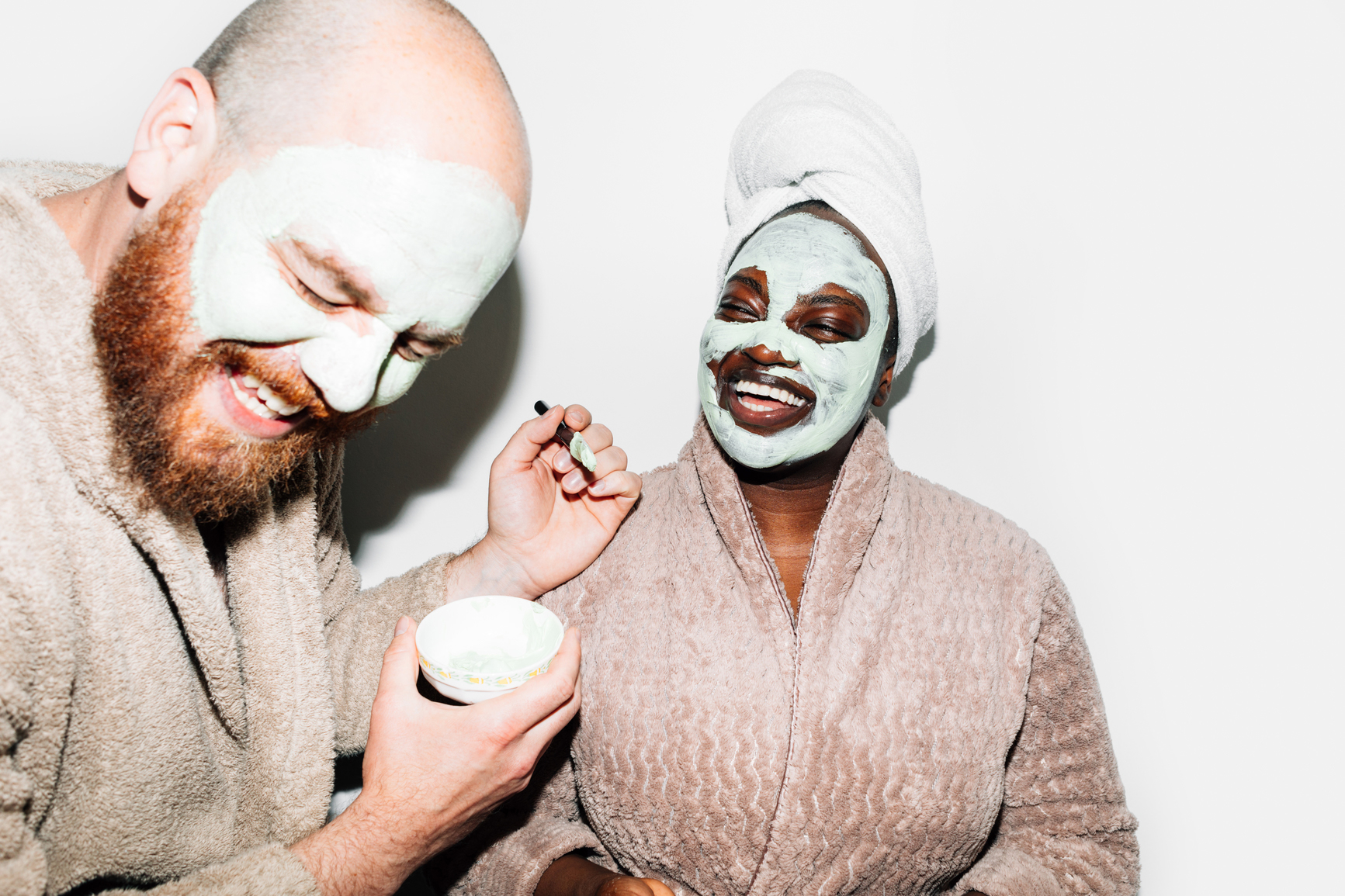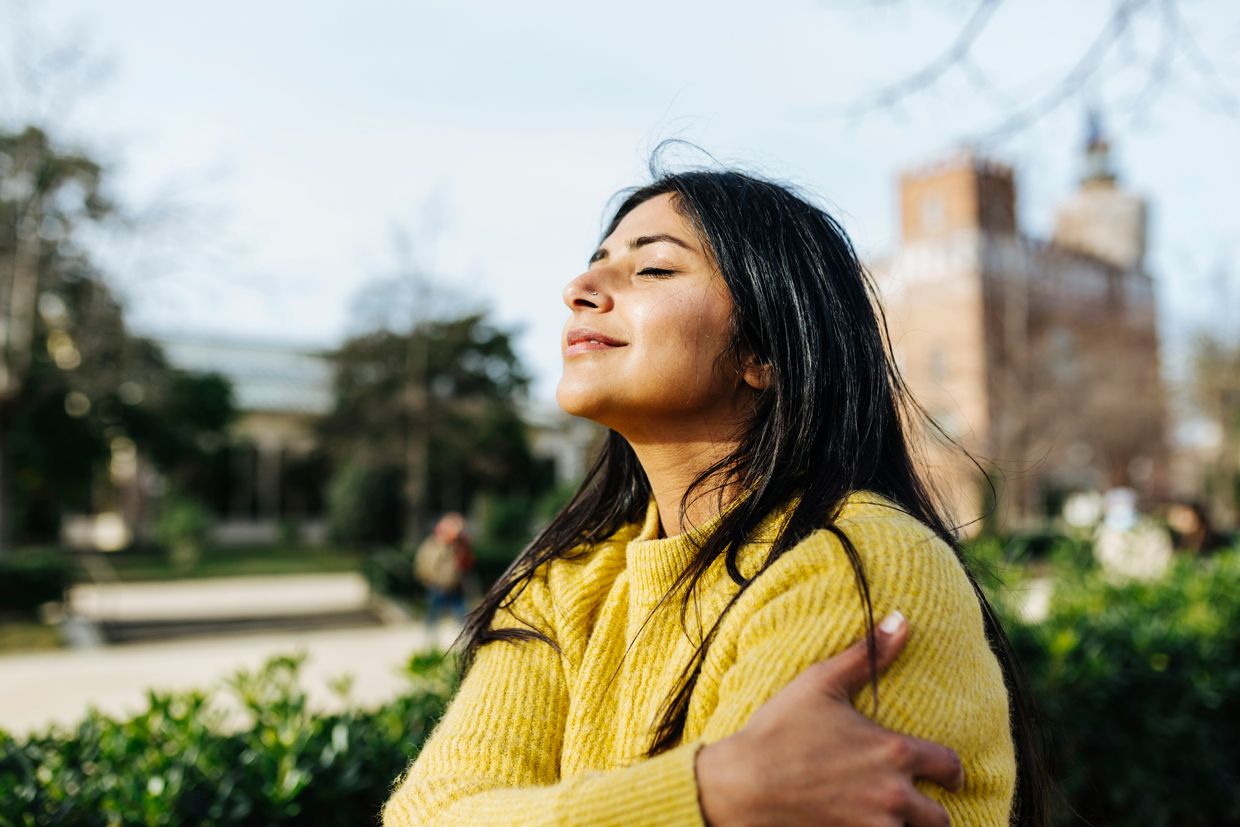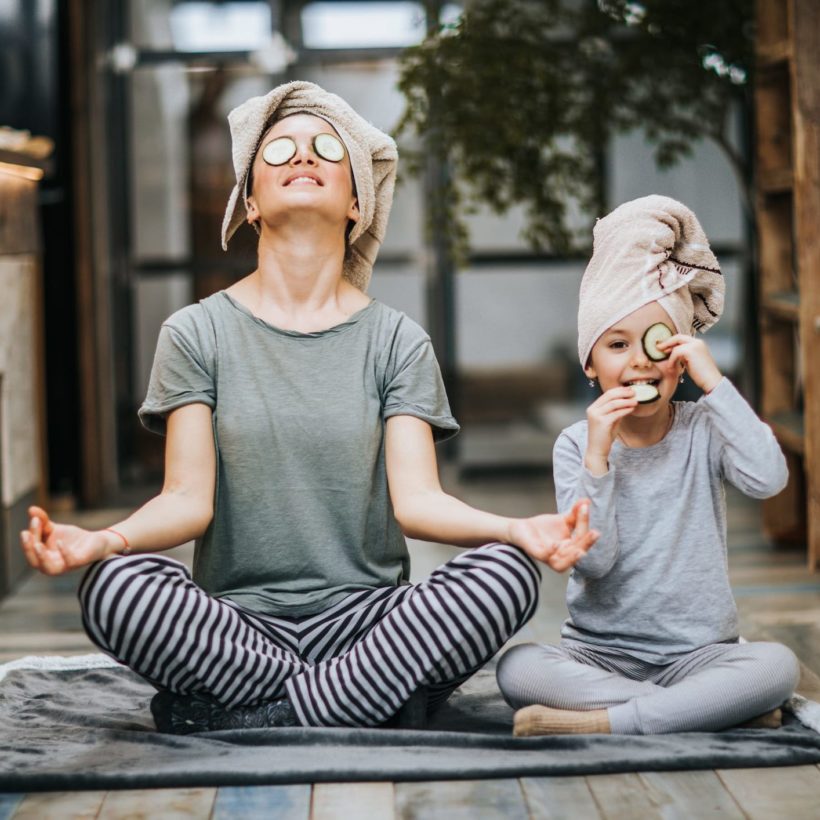“The ‘Sunday scaries’ are real,” says Dr. LaNail Plummer, a licensed clinical professional counselor and founder of Onyx Therapy Group. Officially, they’re what psychologists describe as “time-oriented anxiety,” Dr. Plummer says. “In pure essence, it’s the emotional experience that occurs right before one has to return to work.” It’s what, if you’re like me, you experience as the creeping sense of dread and overwhelming urge to hide under a blanket and watch “Gilmore Girls” rather than face the idea of going back to work on Monday. Not exactly the strongest start to your workweek.
Eighty percent of Millennials and Gen Zers surveyed said they regularly deal with the debilitating feeling.
According to a recent survey from LinkedIn, this weekly sense of dread is at an all-time high — not all that shocking, considering general anxiety and depression rates spiked over the course of the pandemic, according to Mental Health America. But what is surprising is how many people — especially young adults — report dealing with the Sunday scaries. Eighty percent of Millennials and Gen Zers surveyed said they regularly deal with the debilitating feeling.
The cause behind your Sunday scaries might be purely stress-related. “There are times when this anxiety or fear is connected to an overwhelming number of tasks or a substantive project that has a lot of moving parts,” says Dr. Plummer. The tyranny of the to-do list is real, but this is rarely all it is. “Generally, the Sunday scaries are rooted in a complex emotion, [such as when] you have to return to a place of work or a place of being in which you do not feel comfortable, seen, heard, validated or appreciated,” she says. “Since we don’t always have the space to process our emotions, the feelings return each week and with greater intensity or a deeper sense of dread.” For some, the anxiety bleeds into the week, until we can start to think about “Freedom Fridays,” Dr. Plummer says.

So, other than quitting your job, what can you do about it? As with all types of anxiety, mindfulness can be a powerful tool. “The goal of mindfulness is to slow down so we can increase our awareness of ourselves — specifically around our breaths, our heartbeats, our recurring and intrusive thoughts, and our bodily reactions to these thoughts,” says Dr. Plummer. “When we practice mindfulness, we reconnect with ourselves and the source of our existence.” When it comes to the Sunday scaries, mindfulness can not only help you calm down in the moment but also get to the root of why you’re feeling the weekly sense of dread — maybe it’s your to-do list ahead of a big project or maybe it’s something deeper like experiencing microaggressions at the office or feeling like your work doesn’t align with your core values. “Once we use mindfulness to illuminate the root feeling and cause, we can create a solution-oriented plan. We can decide if we need to advocate for ourselves and find the correct words to use, if we can delegate some of our work and utilize someone’s complimentary skill-set, if we need to take leave to process work traumas, or if we need to switch positions or companies,” says Dr. Plummer. “Ultimately, this becomes a pathway to awareness, understanding, solutions, and healing.”
Here are three things you can do to build more mindfulness into your weekend to help you combat the Sunday scaries.
-
Block off time for self-care
All that technology that makes our new flexible work arrangements doable? It’s also helped erase the boundaries between work life and home life. Even if you’re not “working” on the weekend, chances are you’re checking in, glancing at notifications on Slack, or keeping an eye on your work inbox, which can contribute to weekend work anxiety.

Wherever you can, set boundaries. Change the notification settings on your phone so that you don’t get push alerts on work pings between 6 p.m. on Friday and 8 a.m. on Monday. If you absolutely must check in on the weekends, set aside specific windows of no-work-allowed self-care time, like a Saturday morning workout, or Sunday afternoon call with your bestie.
-
Go for a Sunday walk
Some of the most powerful mental health treatments are the simplest. Case in point: the massive and ever-growing arsenal of research behind the anxiety-reducing powers of going for a walk outside.

Adding a walk to your weekend taps into a primal mental health treatment: exercise. According to the Anxiety and Depression Association of America, a 10-minute walk can deliver just as many mental health benefits as a 45-minute workout.
Walking can also be a moving mediation, an exercise in mindfulness. “The term mindfulness has been trending for years but we are all familiar with it, in our everyday behaviors. It could be called, ‘taking a break,’ ‘having a time out,’ or simply ‘paying attention to yourself’,” says Dr. Plummer. Walking helps you get out of your head and into your body —focus on your surroundings, grounding yourself in the present moment.
And if your walk happens to be in nature — a local park or green space will do — there’s potential for an even greater reduction in the Sunday scaries. A review of mental health studies on nature walks published in 2021 found that walking in nature can specifically reduce state anxiety — the time-triggered dread you feel before work on Monday.
-
Start a proactive mindfulness practice
The most important thing you can do to have a more mindful weekend, free of the Sunday scaries, according to Dr. Plummer, is to be proactive. “Mindfulness is a practice and takes time and repetition to accomplish. Therefore, it should be practiced before it is needed. I suggest practicing mindfulness when things are going well, which is usually on Thursday or Friday, and repeating the practice through the weekend and first few days of the workweek,” she says.
She suggests starting with a five-minute guided meditation. (If you’re lost, Dr. Plummer recommends searching “five-minute guided meditation on peace” and choosing one you vibe with.) Think about your breathing, breathing in through your nose and out through your mouth. “Accept that other intrusive thoughts will come and try to distract you but you can re-center by listening to the words of the guided mediation,” she says.
Once you get comfy with your meditation practice, try 10-minute meditations. “Remain focused on your breaths while also incorporating a body scan, starting from your big toes and traveling up to your forehead,” says Dr. Plummer. “Envision what your highlights will be each day and see yourself in the activity, with the emotions you will feel, the thoughts you will have, and the way your body will respond.”
The final step is to add a visualization to help address your Sunday anxiety. “Envision your highlights for the day and where a potential issue may arise. Set a vision for how you want to respond to the problem, how you want to feel, and what the desired outcome will be,” says Dr. Plummer. “Remember to breathe through this process and trust that your breaths and vision are the foundation of manifestation.”
We only recommend products we have independently researched, tested, and loved. If you purchase a product found through our links, Sunday Edit may earn an affiliate commission.









